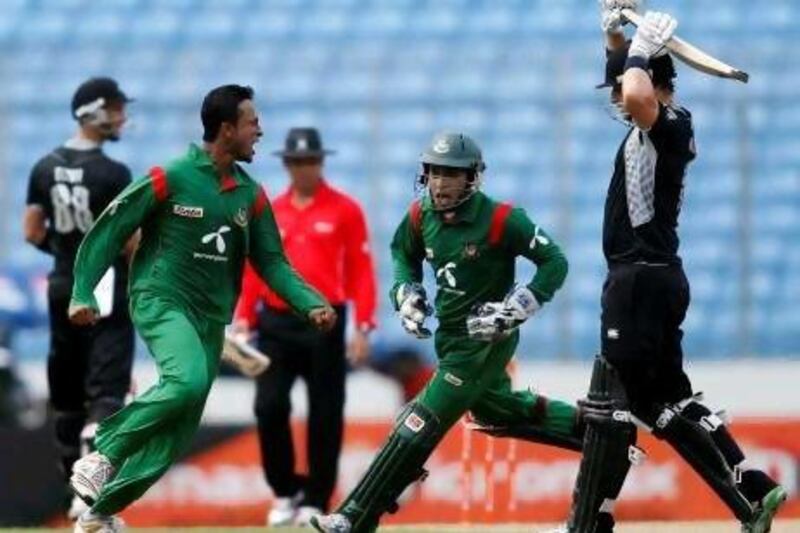DUBAI // Security surrounding Bangladesh’s tour of Pakistan later this month is “absolutely not negotiable”, the ICC said yesterday following a two-day meeting of the executive board in Dubai.
The sports governing body is still waiting for the Pakistan Cricket Board’s security plan, following which they will conduct their own assessments.
And this could determine whether elite umpires and other match officials travel to the country.
“We all know safety and security is a fundamental issue,” Haroon Lorgat, the chief executive of the ICC, said. “It is absolutely not negotiable, but we are confident that in some way or the other, we will be able to make some progress with getting cricket back into Pakistan.”
Bangladesh are to play a one-day international on April 29 and a Twenty20 match the following day, both in Lahore. The big question is who will officiate in these games.
“We have still got to assess the security plan, canvas our elite panel of umpires and see whether we can get appointments,” Lorgat said. “So it’s still something that we have got to deal with, but the board has agreed that non-neutral umpires may stand in that fixture.”
The directors also discussed the Woolf Report and confirmed the necessary amendments to the constitution to split the role of the ICC president and chairman of the board.
Lord Woolf was the head of an Independent Governance Review Committee appointed by the ICC and his report contains 65 recommendations on the restructuring of the ICC’s executive board to make it more independent and less dominated by the bigger countries.
It also recommends a re-examination of the rights and benefits of the Full Member nations, calling for measures to increase transparency in dealings between the ICC and its members.
The role of the president will be reformed after the annual conference in 2014 to separate the chairman of the board position from that of the president. The vice-presidency will cease to exist.
The term of the president will be one year and it will rotate among the members. The chairman will be appointed by the board, with a maximum tenure of three two-year terms. Both he and the president will be non-voting members of the board.
“Those amendments will now be taken forward to the annual conference in Kuala Lumpur at the end of June for adoption,” Lorgat said. “Once that is done, I think that is a significant step forward in reshaping the governance of the ICC or the board.”
The directors have also adopted the Woolf recommendation on creating targeted funding for member nations, and will discuss the other recommendations of the report among themselves for a “clearer understanding”.
"It [the Woolf report] is a comprehensive piece of work," Lorgat said. "There are real implications for the ICC, for members and it is something that we need to be careful and take out time in properly dealing with it."
arizvi@thenational.ae





